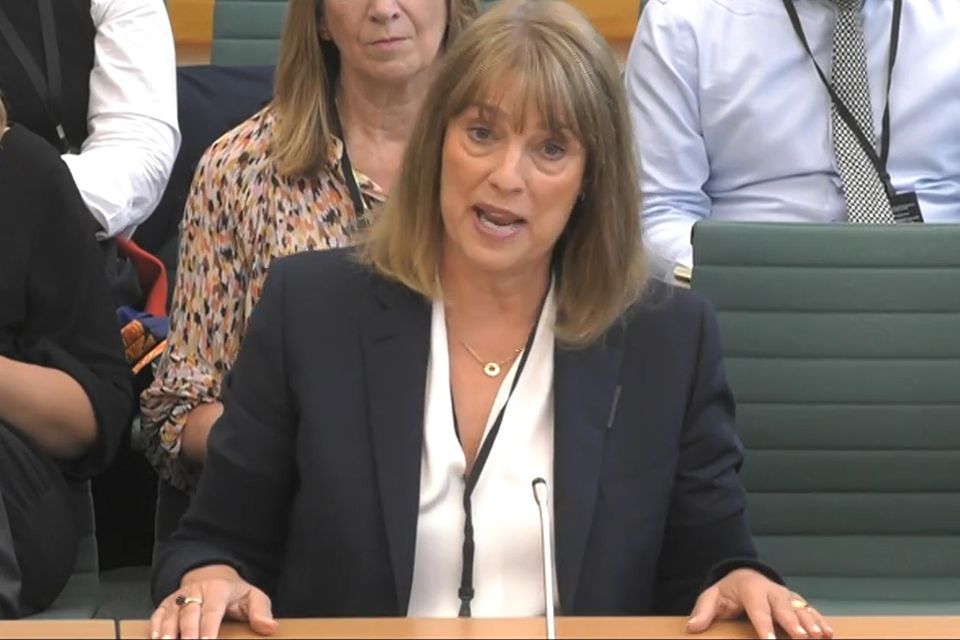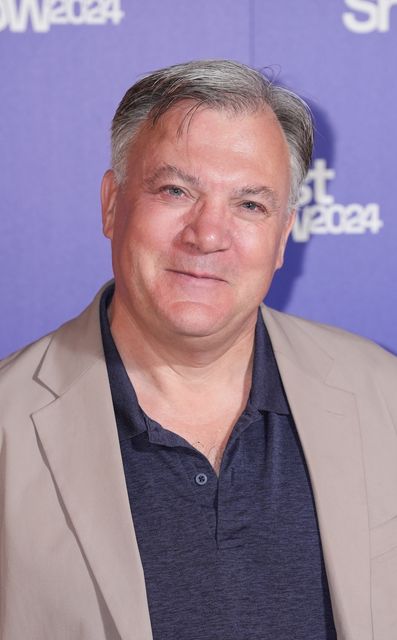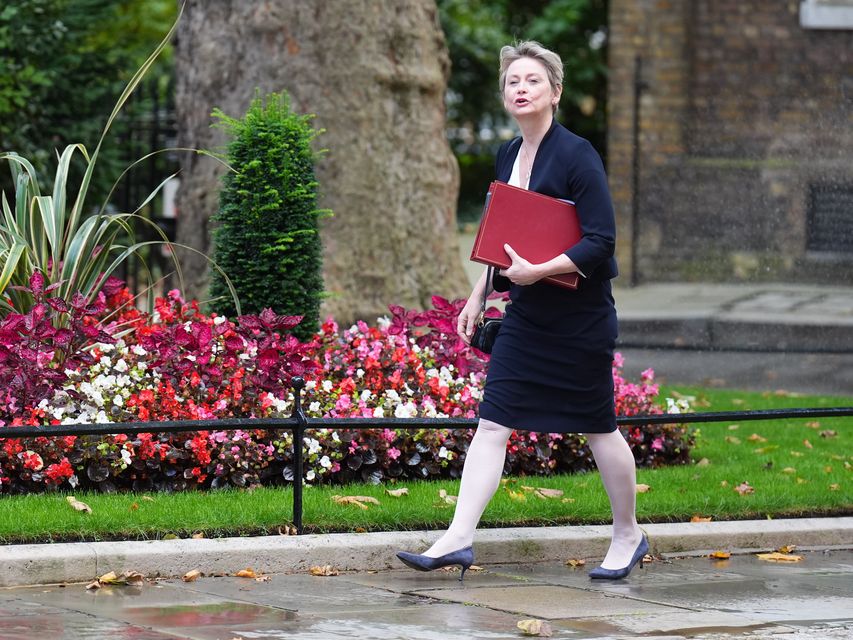
ITV chief executive Dame Carolyn McCall has said the broadcaster will not do more interviews in the style of Ed Balls interviewing his wife Yvette Cooper.
Dame Carolyn described the interview as a “very, very tricky morning” for ITV and said the broadcaster got “very short notice” that Ms Cooper would be coming on the show, as media regulator Ofcom revealed it would not be pursuing the matter further.
Ofcom received more than 8,000 complaints about Mr Balls questioning Ms Cooper, with some complaints also relating to an exchange with Coventry South MP Zarah Sultana.
It comes after Ed Balls interviewed his wife Yvette Cooper on Good Morning Britain (Ian West/PA)
The ITV boss was replying to a question from presenter Amol Rajan at the Royal Television Society (RTS) London Conference, who asked: “How can anyone take ITV seriously on impartiality?” after the incident.
Dame Carolyn said: “It was a very, very tricky morning, there was a national emergency almost being called, and so we got very short notice that the Home Secretary was coming on the show.
“She was doing a whole round, but it was unexpected, and we believe that it was fair and impartial, and actually Ofcom just ruled, but amazingly no-one has picked up on the fact, that Ofcom are not pursuing these complaints, because they believe it’s fair, balanced and impartial.
“So would we do it again? No. Was it impartial, fair and balanced? And did they behave professionally? Yes.
“I mean, he asked her a few questions, but I think Kate (Garraway) was leading on that wasn’t she? And so I do think you’ve just got to say, if Ofcom have looked at it and they’re not pursuing this any further because they thought it was fair balanced and impartial, you know, that’s it.”
It comes after Mr Balls interviewed Ms Cooper on Good Morning Britain about violent protests in some parts of the UK in the wake of the killing of three young girls in Southport.
An Ofcom spokesperson said: “We carefully considered complaints from viewers who objected to Ed Balls interviewing his wife, Yvette Cooper, the Home Secretary.
“Taking into account that their relationship was made clear twice, that a range of views about Labour’s handling of the riots were included in the programme as a whole, and given the vast majority of the interview was conducted by co-presenter, Kate Garraway, we will not be pursuing further.
Home Secretary Yvette Cooper arriving in Downing street, London (James Manning/PA)
“We have, however, issued guidance warning ITV to take particular care over the compliance of such interviews in future to ensure due impartiality is preserved given the clear potential issues that could arise from such an editorial decision.
“Additionally, we will not be pursuing complaints about an interview with Zarah Sultana MP on this programme.
“In our view, Ms Sultana was given ample opportunity to express her views and respond to the questions put to her, while we consider the robust line of questioning would be consistent with regular viewers’ expectations of interviews with political figures on this programme.”
Dame Carolyn went on to criticise the Government’s ban on junk food advertising before 9pm, which she said was something the channel would have to “mitigate in any way we can”.
She said: “It’s been a battle we’ve been fighting with other commercial PSBs (public service broadcasters) for some time.
“Because actually, if you look at the numbers, this is about childhood obesity, 95% of adults watch ITV before 9pm, kids are on YouTube.
“We can’t have it all ways, I mean the demographic trends are that, you can’t say TV (doesn’t) attract kids 16 to 25, they’re not on TV much.
“They will come in for the odd shows, you can’t have it both ways, anyway.
“We’ve done loads of research to say this is not going to make a dent in childhood obesity, but it is a political thing, and so we’re going have to mitigate it in any way we can.
“This is really not good news for commercial PSBs, because this is part of how we make our money.”
Dame Carolyn also spoke about the broadcaster cutting 200 roles earlier this year, and said it had to “look at everything all the time”.
She said: “I would say the really important thing, you know, we talk about redundancies, that is because we’re facing into the future, and we’re really having to look at everything we do.
“We’re going to continue to have to look at everything we do because we want to be around for the next 70 years and thriving, and if we stay as we are, we’re not going to do that, we’d be no good to the indies, because we won’t be here.
“So the really, really important thing is to continue to succeed, and it is restructured.
“I mean, 80% of people that left were voluntary redundancies that have been there a long time, and were leaving, and might have been coming up to the time, but I just think we can’t stay as we are.
“We have to look at everything all the time.”

